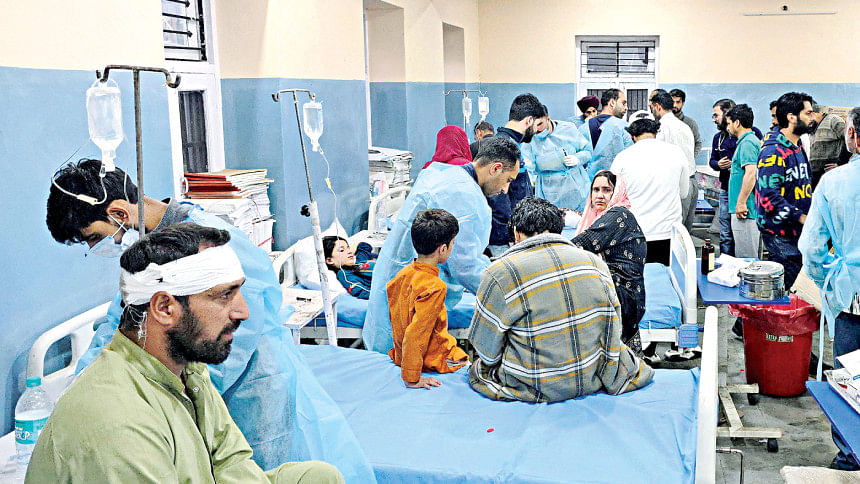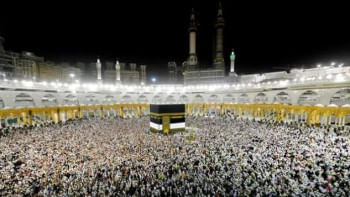What happens next?

Weeks of tension erupted early yesterday morning when India fired missiles into Pakistan and Pakistan-controlled Kashmir, escalating the likelihood of a full-blown military confrontation between the nuclear-armed South Asian neighbours.
Pakistani authorities said at least 26 people, including a child, were killed overnight, decrying a "blatant act of war".
India said its strikes were "focused, measured and non-escalatory in nature", emphasising that no Pakistani military facilities had been targeted.
Australian Strategic Policy Institute resident senior fellow Raji Pillai Rajagopalan said there was a "a lot of disappointment, pain and anger" in India over the religion-based targeting of civilians.
WILL INDIA, PAKISTAN GO TO WAR?
Pakistani Prime Minister Shehbaz Sharif said on social media: "The treacherous enemy has launched a cowardly attack on five locations within Pakistan. This heinous act of aggression will not go unpunished. Pakistan reserves the absolute right to respond decisively to this."
Pakistan's Defence Minister Khawaja Asif claimed five Indian planes had been shot down and that Indian soldiers had been captured, reports abc.net.au.
Speaking to Bloomberg TV, Mr Asif denied that there were terrorist training camps in the areas struck by India and that it was civilians who were suffering. "This has been initiated by India … If India backs down we will definitely wrap up this thing," he said. "But as long as we are under attack, under fire, we have to respond. We have to defend ourselves."
Experts said the course of the conflict depended on the scale and nature of Pakistan's response. RAND Corporation defence analyst Derek Grossman told the ABC that the air strikes were "a very serious escalation in India-Pakistan tensions that could, if taken to the extreme, result in nuclear war".
"Much depends on the Pakistani response, and if they stay true to their word, then their retaliation may be substantial and potentially escalatory," he said.
WHAT ARE THE BROADER GLOBAL RISKS?
The two countries possess comparable nuclear arsenals, with India holding 172 nuclear warheads and Pakistan 170.
"There is a chance, though low, that an escalating war could bring great powers into conflict via proxy as well," Grossman said. "India benefits from Russian assistance in the form of defensive weaponry, with the Kremlin reportedly recently having provided new missiles," he said.
"However, India also has a strong relationship with the United States, and it has pledged support as well. And Pakistan's closest strategic partner is China." Still, Dr Rajagopalan said Pakistan's leadership had "shown a reasonable amount of maturity to keep the conflict in limited fashion and not let it completely go out of hand".

 For all latest news, follow The Daily Star's Google News channel.
For all latest news, follow The Daily Star's Google News channel. 



Comments